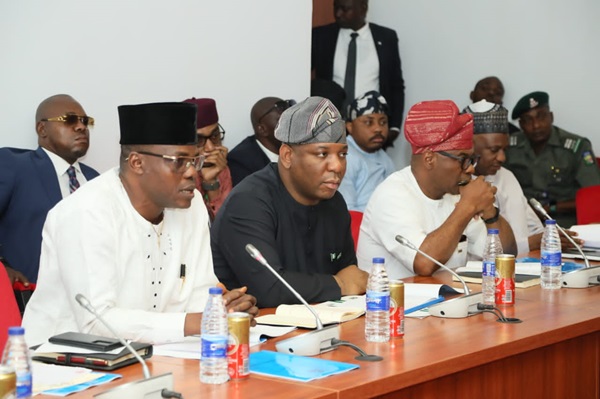…as ministry seeks collaboration with NASS to revive steel sector and kick-start priority projects

The Senate and House of Representatives Joint Committees on Steel Development have called on the Minister of Budget and Economic Planning to collaborate with the Ministry of Steel Development and the National Assembly (NASS) to increase the Ministry’s 2025 budgetary allocation to enable it to meet its mandate effectively.
The call was made after the Minister of Steel Development presented the Ministry’s 2025 budget proposal to the National Assembly on Wednesday, January 22, 2025, requesting an increase to achieve optimal performance.
The Ministry of Steel Development received a 2025 budget allocation of ₦24.029 billion, far below its initial request of ₦315 billion. The ministry is now seeking the collaboration of the National Assembly for an additional intervention of ₦33.031 billion to fund immediate priority projects. This request also aligns with the joint committees’ declaration of a state of emergency on scrap collation centres, aimed at addressing critical gaps in the sector.
Recognising the strategic role of the steel sector in driving economic diversification and growth, the joint committees approved the ministry’s request for a budget increase. They emphasised the sector’s potential to boost industrialisation, create jobs, and strengthen the economy.
Chairman of the Senate Committee on Steel Development, Senator Patrick Ndubueze spearheaded the call for a state of emergency on scrap metal. He stressed the need to safeguard government infrastructure and enhance steel production through the establishment of scrap collation centres across the six geopolitical zones.
Following the adoption of the ministry’s 2025 budget proposal, chairperson of the House Committee on Steel Development, Hon. Zainab Gimba moved a motion for a meeting between the ministry, the joint committees and the Minister of Budget and Economic Planning to explore scaling up the ministry’s budget.
“When the joint committee decided to declare a state of emergency on scrap collection, it became clear that the current budget allocation cannot adequately fund critical projects,” Gimba said.
“I, therefore, move that we invite the DG and the Minister of Budget and Economic Planning to interface with the ministry and the joint committee to ensure the budget for the Ministry of Steel Development and its agencies is increased to achieve their mandate,” she added.
Deputy chairperson of the Senate Committee on Steel Development, Senator Natasha Akpoti-Uduaghan seconded the motion, emphasising that increasing the budget is crucial for the revival of the steel sector, including the Ajaokuta Steel Plant and the National Iron Ore Mining Company (NIOMCO), Itakpe.
“The joint committee urges the Minister of Budget and Economic Planning to significantly increase the 2025 budget allocation for the Ministry of Steel Development, given the sector’s critical importance to national development.
“This is especially urgent considering the emergency status of scrap collection to prevent further destruction of infrastructure. A substantial budget increase is necessary to revitalise the ministry and the entire steel sector,” Akpoti-Uduaghan said.
While presenting the 2025 budget, the Minister of Steel Development, Prince Shuaibu Abubakar Audu, outlined the ministry’s primary objectives for the year. These include attracting foreign direct investment (FDI), boosting government revenue, increasing foreign exchange earnings, reviving the steel sector, and completing the revitalisation of the Ajaokuta Steel Complex and NIOMCO.
In a statement signed by the ministry’s head of information and public relations, Ijomah Opia the minister noted that these goals cannot be achieved without adequate funding and the collaboration of the National Assembly.
“Given the strategic importance of the steel sector in driving industrialisation, job creation, and attracting FDI, the ministry must receive enhanced budgetary support to implement its ambitious projects for 2025,” Prince Audu said.
He expressed concern over the disparity between the Ministry’s request and the approved allocation. “We requested ₦315 billion, but were allocated only ₦24.029 billion, including a capital budget of ₦8.3 billion, which is grossly inadequate to launch critical projects and enhance asset valuation during privatisation.
“For this reason, we are seeking an additional intervention of ₦33.031 billion for immediate priority projects, particularly in light of the state of emergency on scrap collation centres,” the minister added.


